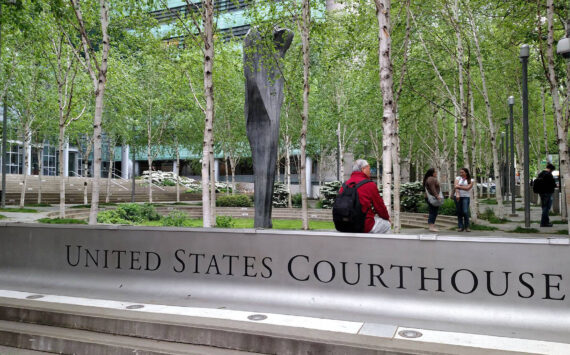Not a season goes by without some study claiming the Net makes people weird. This time the honors are done by a group of researchers led by Stanford professor Norman Nie. An acolyte of the Church of We’re-All-Going-to-Hell-in-a-Handbasket, Nie is exercised about what he calls the crisis of modernity and the breaking of ligatures, which means that the Net is making us all loner losers.
Stanford profs have a lucrative side-line going in telling us how despite all our sophisticated ways of entertaining ourselves—the Net, movies, fine arts, recorded sound, theme parks—inside our heads it might as well be 1,000,000 BC because we humans respond in primitive ways to stuff like snakes and fire and speech. When we don’t recoil from a TV image of a reptile or Maury Povich, it’s only because we’ve taught ourselves not to. That’s something I learned from The Media Equation by Byron Reeves and Clifford Nass, which you ought to read if you haven’t already. Reeves and Nass are Stanford profs too. Their conclusions aren’t always tenable, but it’s interesting stuff.
Nie’s cultivating the same garden: We humans don’t interact with media as well as we think we do. However, I don’t recall Reeves or Nass referring to any of their media as “contagion.” Comparing the development of the Net to that of suburbia, he claims that we’re isolated from our communities, our neighbors, and now even our families, and that we haven’t replaced them with anything worthwhile—an argument made several years ago by Clifford “Silicon Snake Oil” Stoll among others. And he goes on a great deal in interviews about hugs, which seem to fall just short of status as actual currency for him.
I realize that Nie is a highly respected veteran of academia and I’m just a columnist, but all this cant about isolation would fly farther if it a) bore any resemblance to most folks’ experience, or b) was based on more than just a handful of questions posed to various Net users, some of whom were characterized for the purposes of the study as nonusers. (How do you query nonusers about Net use? Why, you make sure they aren’t on the Net, then you give them a set-top box and have them get on the Net. It’s a kind of virginity I suppose. . . .)
Nie opines that even e-mail doesn’t connect people as well as the phone or as well as talking over a television blaring in the background. (I’m beginning to think my mom was on his research team.) Even if e-mail correspondents are writing letters of significance, which Nie doubts, it’s still time away from that room with the people and the TV and the telephone.
Thank god, I say.
Certainly I can list any number of ways in which the Net doesn’t mesh with our primitive instincts, like the pressure to let 24/7 access eat away at our god-given right to be left in peace now and then, or the fight-or-flight instinct that made sense when shrill noises signaled an attack rather than an incoming phone call. It took us millennia to learn to be human; we’ll invent ways to be human in the Information Age much more slowly than we invent the devices that define that age. We will not, however, run them by a professor for approval.
What the Net gives us that Nie doesn’t appreciate is not limitless connectivity (whether that means 24/7 e-mail or all this damned hugging) but the ability to step temporarily away from life’s overwhelming demands on our time and attention. The Net allows us to reconstitute our primitive brains and to insist on our right to react via language, that most human of tools. And after years of not flinching at snakes or Maury Povich, I trust my own humanity to help me appreciate and benefit from words on a screen—and to know that the Net is only another way to bring people into the same room with me after all.
Nie, curiously, doesn’t seem to be familiar with the other studies that covered this territory over the years, many of which utilized more substantial sampling than he used to draw these “conclusions.” One hopes he did more extensive competitive research when he founded InterSurvey, his start-up online polling company, which contributed to this study.
Oh, did I mention that Nie has a start-up?
Suddenly it all comes into focus, and it’s the same picture we see in the business pages every blessed day. The Internet doesn’t make one antisocial; in fact, most folks, especially those of us who grew up comfortable with computers, think it’s quite the opposite. I wish that these bright researchers would quit worrying that the Net is making us antisocial and ask instead why it makes so many people so greedy—for Net-derived wealth and for other people’s time.




